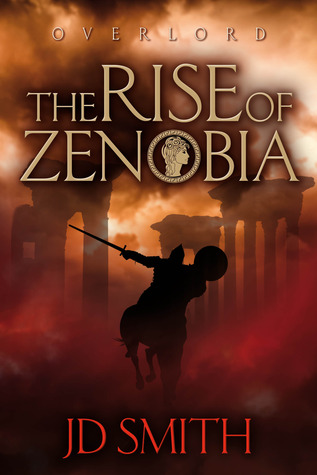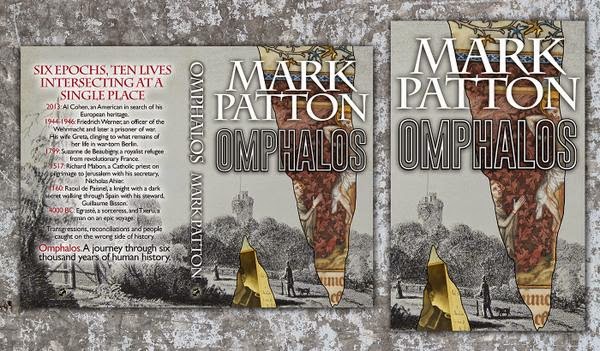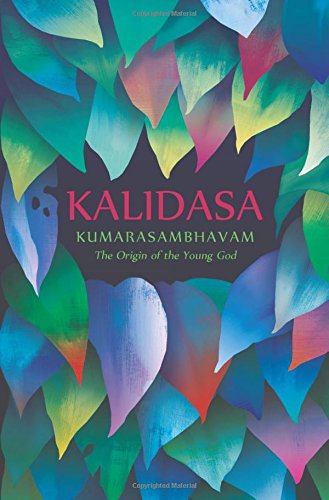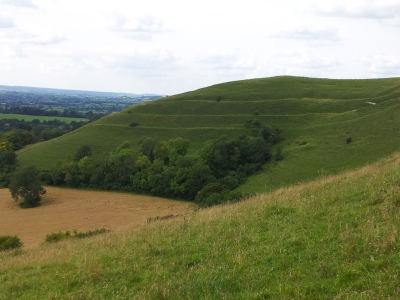It seems to be sort-of customary for blog writers to set out a kind of manifesto at the start of the year – not quite a set of resolutions, since most people seem to be off resolutions this year, but more of a declaration of intent.
My own musings on this were partly triggered by getting my Goodreads stats sent through to me – seems that as regards GR I have reviewed 42 books (11495 pages). Now, I know there are a few HNS reviews still waiting to go through their system before I can post elsewhere, but it’s a fair reflection. I was also quite pleased to see that although most were published in the last few years, I have a scattering of 19th and early 20th century ones, and a couple going way back – The Elder Edda and the Kumarasambhava to be precise.
I took part in two “Reading Challenges” this year – for The Historical Tapestry I just failed to meet the target (25 books… I was one off), after family illness stopped progress for a while. But for The Mad Reviewer I was well in excess of my planned 26 books as the non-historical fiction titles boosted the total nicely. I’m still thinking about whether I want to participate in a similar challenge this year, or whether my activities with HNS and other review groups will be quite sufficient!
Next year on the blog I am planning to do a monthly interview, mostly with historical fiction authors but no doubt a few others thrown in as well. I’m also planning to up the frequency of the historical posts picking out some feature of the background to my own writing – or else just something that caught my eye historically. This probably means I will combine several reviews together in abbreviated form rather individually in full form, since after all there isn’t room or time for everything!
 As regards my own writing, the CreateSpace version of Scenes from a Life went live a little while into 2014 (the kindle version being available in December 2013), and said book got through to the quarter finals of Amazon’s ABNA award.
As regards my own writing, the CreateSpace version of Scenes from a Life went live a little while into 2014 (the kindle version being available in December 2013), and said book got through to the quarter finals of Amazon’s ABNA award.
 This year the big event should be the release of The Flame Before Us – hopefully by March or so, all being well. There will be no shortage of news about that… Right now I am working on the last major incomplete section, then comes a few rounds of editorial work and such like before release.
This year the big event should be the release of The Flame Before Us – hopefully by March or so, all being well. There will be no shortage of news about that… Right now I am working on the last major incomplete section, then comes a few rounds of editorial work and such like before release.
So lots to look forward to in the coming year… not least the excitement of encountering new people and new books through the various routes we all use. Last year’s HNS conference here in London gave a good opportunity to actually meet with some of the many people I enjoy “meeting” online – but there are a great many other people who as yet I have not encountered in the non-virtual world. It would be a nice resolution to aim to meet a few of these, but time will tell if it is a realistic one!
Meanwhile, all the best for 2015 to readers of this blog.

 This is the rather sombre setting, with its continual sense of impending doom, that JD Smith has chosen to write about. The cast of characters is a mixed group of individuals, mostly drawn from a single extended family and their retinue, who are striving to preserve the way of life that they know. The question which dominates the book is whether Rome will be either willing or able to help, or whether the region would be better served by cutting loose altogether.
This is the rather sombre setting, with its continual sense of impending doom, that JD Smith has chosen to write about. The cast of characters is a mixed group of individuals, mostly drawn from a single extended family and their retinue, who are striving to preserve the way of life that they know. The question which dominates the book is whether Rome will be either willing or able to help, or whether the region would be better served by cutting loose altogether. The plot is quite diverse, dealing with political machinations in the US as well as the selection process for the passengers, a glimpse of the scientific advances needed for the journey, and a little about the shipboard life on the way. A striking feature of Andreas’ writing is that she is not afraid to skip over spans of time where nothing much happens, in order to focus on the next key event. So for example very little is said of the actual journey through space.
The plot is quite diverse, dealing with political machinations in the US as well as the selection process for the passengers, a glimpse of the scientific advances needed for the journey, and a little about the shipboard life on the way. A striking feature of Andreas’ writing is that she is not afraid to skip over spans of time where nothing much happens, in order to focus on the next key event. So for example very little is said of the actual journey through space. The closest analogy I have read is The Source, by James Michener, but Mark achieves here something which in my view is more memorable and more human. The Source tended, despite the author’s efforts, to lose the personal dimension against the grand sweeps and calamities of history. Also it progressed linearly forwards through history rather than giving the sense of diving deep, and then slowly surfacing again. Mark, while still setting his various characters in times of flux and crisis, never allows these settings to obscure personal dramas and interpersonal relationships. Sometimes the links between the layers are obvious; other times there are only little clues in the narrative to spark the connection.
The closest analogy I have read is The Source, by James Michener, but Mark achieves here something which in my view is more memorable and more human. The Source tended, despite the author’s efforts, to lose the personal dimension against the grand sweeps and calamities of history. Also it progressed linearly forwards through history rather than giving the sense of diving deep, and then slowly surfacing again. Mark, while still setting his various characters in times of flux and crisis, never allows these settings to obscure personal dramas and interpersonal relationships. Sometimes the links between the layers are obvious; other times there are only little clues in the narrative to spark the connection. The Summer Queen follows the life of Eleanor of Aquitaine (Alienor here, a more accurate representation of the name) up to the point where she is about to arrive in England as the new queen of this land. She is already a highly travelled and shrewd ruler of her own territory and others, and the expectation is set in the reader that things are on the up, after some unpleasant experiences in the first part of her life.
The Summer Queen follows the life of Eleanor of Aquitaine (Alienor here, a more accurate representation of the name) up to the point where she is about to arrive in England as the new queen of this land. She is already a highly travelled and shrewd ruler of her own territory and others, and the expectation is set in the reader that things are on the up, after some unpleasant experiences in the first part of her life. The theme of the work is the courtship of Shiva and Parvati, as imagined through their personal interactions, the participation of other individuals, and the rich echoes of their emerging love in the natural world. The 8th section celebrates their sexual union after their wedding. In due course this will lead to the birth of the Young God of the title, who will liberate parts of the natural and divine world from oppression. Over the years, this final section has been sometimes been regarded as an improper subject for poetry, and has often been omitted from published versions. To me this immediately brought to mind the Song of Songs in the Hebrew Bible, which has from time to time only gained acceptance by being read as allegory rather than literal delight.
The theme of the work is the courtship of Shiva and Parvati, as imagined through their personal interactions, the participation of other individuals, and the rich echoes of their emerging love in the natural world. The 8th section celebrates their sexual union after their wedding. In due course this will lead to the birth of the Young God of the title, who will liberate parts of the natural and divine world from oppression. Over the years, this final section has been sometimes been regarded as an improper subject for poetry, and has often been omitted from published versions. To me this immediately brought to mind the Song of Songs in the Hebrew Bible, which has from time to time only gained acceptance by being read as allegory rather than literal delight. The Wessex Turncoat follows apprentice blacksmith Aaron Mews, from his home near Fordingbridge, Hampshire, through forced entry into George III’s army, over to Canada. The second half of the book describes his part in the disastrous 1777 campaign against the rebellious American colonies.
The Wessex Turncoat follows apprentice blacksmith Aaron Mews, from his home near Fordingbridge, Hampshire, through forced entry into George III’s army, over to Canada. The second half of the book describes his part in the disastrous 1777 campaign against the rebellious American colonies. Do Not Forget Me Quite spans nearly twenty years of a family’s life, starting on the eve of WWI. The main focus is on the father, John, who feels morally obliged to enlist in the medical corps as hostilities commence. His wife Emma resents this, and in part the book explores the ensuing personal and family distress that follows for the couple and their children. The most evocative section is when John is invalided home before the end of the war, and John and Emma are forced to confront the consequences of their choices. Towards the end of the book Emma fades out, and their eldest daughter replaces her as a female protagonist.
Do Not Forget Me Quite spans nearly twenty years of a family’s life, starting on the eve of WWI. The main focus is on the father, John, who feels morally obliged to enlist in the medical corps as hostilities commence. His wife Emma resents this, and in part the book explores the ensuing personal and family distress that follows for the couple and their children. The most evocative section is when John is invalided home before the end of the war, and John and Emma are forced to confront the consequences of their choices. Towards the end of the book Emma fades out, and their eldest daughter replaces her as a female protagonist.

